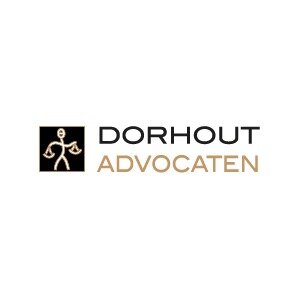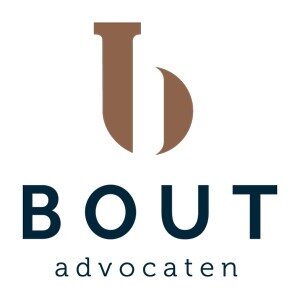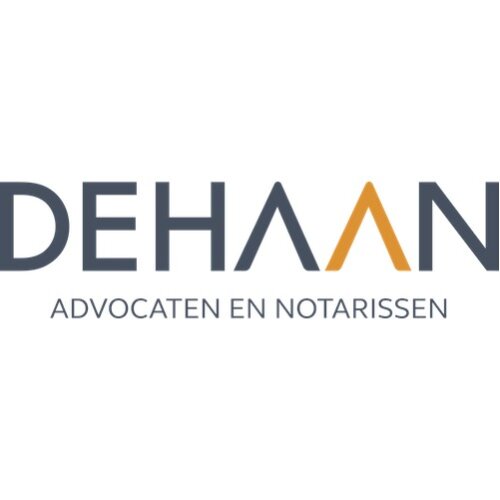Best Restructuring & Insolvency Lawyers in Groningen
Share your needs with us, get contacted by law firms.
Free. Takes 2 min.
List of the best lawyers in Groningen, Netherlands
Netherlands Restructuring & Insolvency Legal Articles
Browse our 1 legal article about Restructuring & Insolvency in Netherlands written by expert lawyers.
- Netherlands WHOA Guide: How Creditors Can Protect Their Rights
- The WHOA (Dutch Court Confirmation of Extrajudicial Restructuring Plans) allows companies to restructure debt without the consent of all creditors. A "cross-class cram-down" can bind dissenting classes of creditors to a plan if at least one "in-the-money" class votes in favor. Creditors have limited windows to challenge a plan, usually... Read more →
About Restructuring & Insolvency Law in Groningen, Netherlands
Restructuring and insolvency law in Groningen is part of the broader Dutch legal framework that governs how businesses and individuals can address financial distress. Whether due to economic challenges, mismanagement, or unexpected circumstances, insolvency proceedings and restructuring measures are intended to protect both debtors and creditors. In Groningen, as in the rest of the Netherlands, a range of tools are available to reorganize businesses, settle debts, or, if necessary, initiate bankruptcy. The Dutch system is designed to promote business continuity wherever possible, minimize losses, and ensure fair treatment of all parties involved.
Why You May Need a Lawyer
There are many situations where the expertise of a restructuring and insolvency lawyer in Groningen can be invaluable. Common reasons include:
- Navigating bankruptcy filings or defending against involuntary bankruptcy initiated by creditors.
- Advising on how to restructure corporate debts or obligations to avoid insolvency.
- Negotiating with creditors and securing agreements to prevent liquidation.
- Handling legal obligations as a company director or shareholder when dealing with financial distress.
- Filing claims as a creditor in an insolvency proceeding to recover owed funds.
- Understanding the rights and obligations under Dutch insolvency law, especially as they apply locally in Groningen.
- Managing employment law implications for staff during restructuring or liquidation.
- Preventing or addressing accusations of wrongful or fraudulent trading.
A lawyer ensures compliance with complex laws and maximizes the chances of a favorable outcome during challenging times.
Local Laws Overview
Dutch restructuring and insolvency law is primarily governed by the Dutch Bankruptcy Act (Faillissementswet). This body of law outlines the processes for bankruptcy (faillissement), moratorium of payments (surseance van betaling), and debt restructuring for private individuals (WSNP - Wet schuldsanering natuurlijke personen).
In Groningen, commercial courts (rechtbank) handle insolvency cases for companies and private individuals. Local practice is closely aligned with national law, but the experience and approach of local trustees, courts, and professionals can influence proceedings. Key aspects include:
- Obligation for companies to file for bankruptcy if unable to pay debts as they fall due.
- Restructuring options under the Wet Homologatie Onderhands Akkoord (WHOA), allowing companies to negotiate private settlements with creditors, including forced acceptance by dissenting creditors if approved by the court.
- Strict director liability rules if bankruptcy results from apparent mismanagement or late filing.
- Special protections for employees and specific procedures regarding severance or salary during insolvency.
- Detailed priority rules dictating which creditors are paid first from any remaining assets.
Understanding these local and national laws is crucial for anyone facing financial distress in Groningen.
Frequently Asked Questions
What is the difference between restructuring and bankruptcy?
Restructuring refers to measures aimed at reorganizing financial affairs to avoid insolvency, often through negotiation with creditors. Bankruptcy (faillissement) is a formal legal process in which a court declares a person or company unable to pay its debts, appointing a trustee to manage asset distribution.
Who can file for bankruptcy in Groningen?
Individuals, partnerships, and companies that are no longer able to pay their debts as they become due may file for bankruptcy. Creditors can also petition the court for a debtor's bankruptcy.
Can I avoid bankruptcy through restructuring?
Yes, Dutch law offers several restructuring mechanisms, including WHOA, which facilitates out-of-court settlements with creditors. Successful restructuring may help avoid the need for bankruptcy.
What role does the trustee (curator) play in bankruptcy?
The trustee is an independent professional appointed by the court to manage the debtor’s estate, sell assets, and distribute proceeds among creditors according to legal rules.
Are shareholders liable for company debts?
Generally, shareholders are not personally liable for company debts unless there has been fraud, illegal behavior, or improper conduct that justifies lifting the corporate veil.
What is the WSNP procedure?
WSNP is a special procedure for individuals who cannot repay their debts. It offers debt restructuring and, after successful completion (typically three years), remaining eligible debts are discharged, offering a fresh start.
How are employees affected during insolvency?
Employees have certain protections under Dutch law. In a bankruptcy, the Dutch Employee Insurance Agency (UWV) may guarantee unpaid wages for a limited period.
How long does a bankruptcy process take in Groningen?
The duration varies depending on the complexity, the number and type of assets, and disputes among creditors. Most cases are resolved within one or two years, while complex or contentious cases can last longer.
Will all my debts be eliminated in bankruptcy?
Not all debts are dischargeable. Certain obligations, such as fines or some taxes, may survive bankruptcy. Each case depends on the specific types of debts involved.
Do I need a lawyer for restructuring or insolvency proceedings?
While it is not always mandatory, having a lawyer ensures your rights are protected, provides vital guidance through procedural complexities, and increases your chances of a successful outcome.
Additional Resources
- Dutch Judiciary (Rechtspraak) - provides information on local court procedures in Groningen, including insolvency and bankruptcy filings.
- Dutch Chamber of Commerce (Kamer van Koophandel) - offers advice and support to businesses facing financial difficulties.
- UWV (Employee Insurance Agency) - assists employees affected by employer insolvency.
- Netherlands Association of Insolvency Lawyers (INSOLAD) - a professional body for specialist legal advice.
- Municipality of Groningen - often provides local support and information on debt counseling services.
Next Steps
If you are considering restructuring or suspect that insolvency may be unavoidable, it is important to seek expert advice as early as possible. The following steps can help you get started:
- Consult with a qualified restructuring and insolvency lawyer in Groningen to assess your situation and understand your legal options.
- Gather all relevant financial information, including debt statements, bank records, and contracts.
- Contact professional bodies or local support organizations for preliminary guidance.
- Consider alternative dispute resolution or negotiation with creditors before pursuing formal insolvency proceedings.
- Take prompt action to avoid potential claims of mismanagement or personal liability.
A timely consultation with an experienced legal professional will help protect your interests and improve your prospects for recovery or a fresh start. Do not hesitate to reach out for tailored legal assistance in Groningen if you are facing financial difficulties.
Lawzana helps you find the best lawyers and law firms in Groningen through a curated and pre-screened list of qualified legal professionals. Our platform offers rankings and detailed profiles of attorneys and law firms, allowing you to compare based on practice areas, including Restructuring & Insolvency, experience, and client feedback.
Each profile includes a description of the firm's areas of practice, client reviews, team members and partners, year of establishment, spoken languages, office locations, contact information, social media presence, and any published articles or resources. Most firms on our platform speak English and are experienced in both local and international legal matters.
Get a quote from top-rated law firms in Groningen, Netherlands — quickly, securely, and without unnecessary hassle.
Disclaimer:
The information provided on this page is for general informational purposes only and does not constitute legal advice. While we strive to ensure the accuracy and relevance of the content, legal information may change over time, and interpretations of the law can vary. You should always consult with a qualified legal professional for advice specific to your situation.
We disclaim all liability for actions taken or not taken based on the content of this page. If you believe any information is incorrect or outdated, please contact us, and we will review and update it where appropriate.












